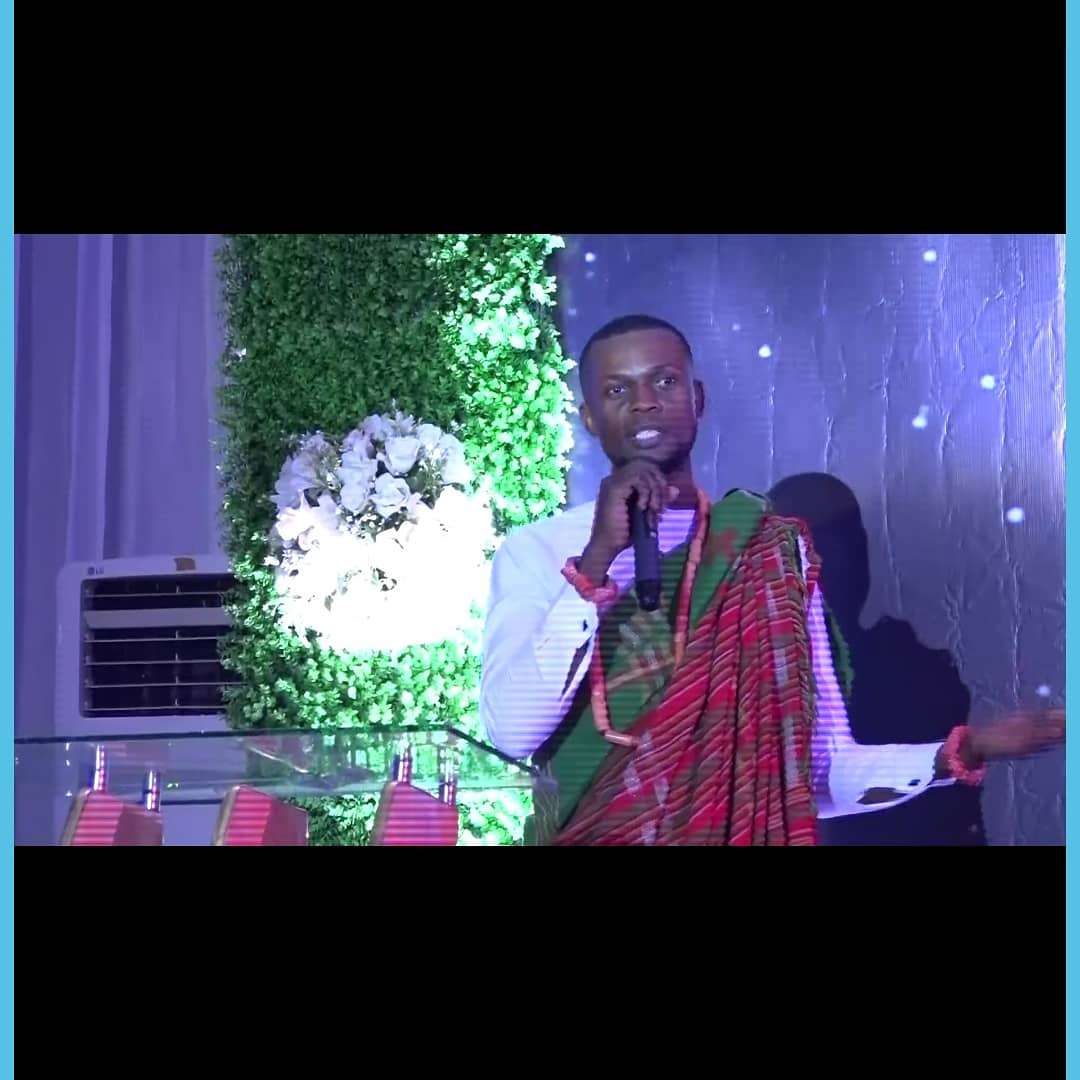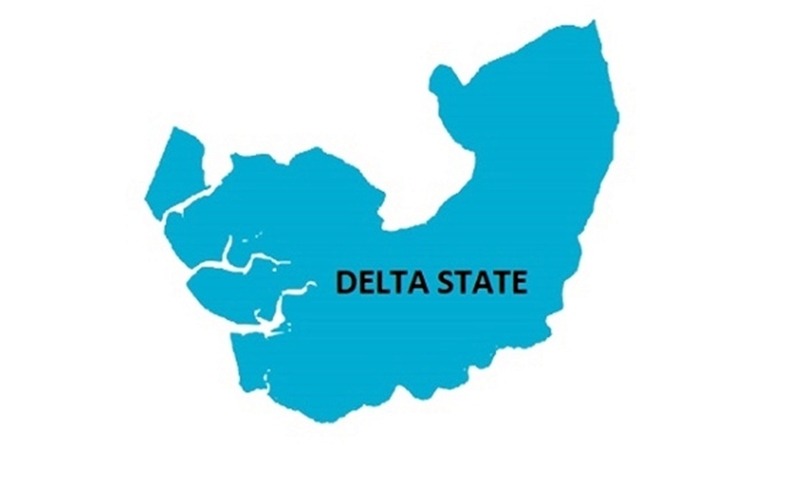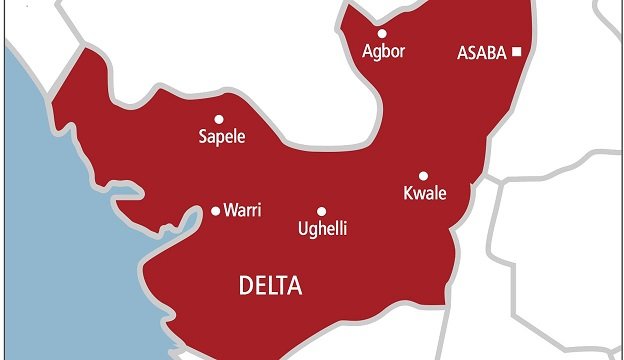Featured
The Poised Pattermaker Commends FECHA Project Fashion Design, Exhibition Hub For Sponsoring Skill Acquisition Training

Management of The Poised Pattermaker has commended the Chief Executive Officer, (CEO) of FECHA Project Fashion Design and Exhibition Hub, Mr. Alex Friday Eguakhide for sponsoring the just concluded Youth Fashion Engagement Workshop that saw over 1,500 youths in attendance.
In a letter signed by the chairman planning committee of The Poised Pattermaker, Mrs Faith Njoku and made available to newsmen in Benin City said all hopes were almost lost, suddenly FECHA Project Fashion Design and Exhibition Hub showed up.
She said the FECHA Project Fashion Design and Exhibition Hub was their saving grace because several donor agencies they have written to for sponsorship agreed to support them financially and logistically but in the eleventh hour, they were nowhere to be found.
Mrs. Njoku said they were about putting off the event when one of his staff suggested that they should write to FECHA Project Fashion Design and Exhibition Hub for sponsorship.
Njoku said though she was a bit reluctant but a still voice keeps telling her not to give up but to listen to the suggestion of her staff which she later did and there was a positive outcome.
While thanking FECHA Project Fashion Design and Exhibition Hub for the sponsorship which saw over 1,500 persons benefitting from the skill acquisition training, she said those who have been trained on how to make soaps, perfumes, beads, tie and dye, can now take care of their immediate need and possibly be of help to other people around them.
She said the week long event was capitally intensive but it worth it.
She said why she is also thanking FECHA Project Fashion Design and Exhibition Hub and its management team is that, this singular sponsorship has helped reduced youths restiveness, crime and criminality in the state.
Responding to appreciation/commendation by the management of The Poised Pattermaker, the Chief Executive Officer, (CEO) of FECHA Project Fashion Design and Exhibition Hub, Mr. Alex Friday Eguakhide, said, he has come to realize that government alone cannot do all but well meaning Nigerians, individual and corporate bodies can come in and lend a helping hand to organizations such as this that needed to train youths on skills to better themselves and their families.
He said when the youths are empowered with various skills, there will be less crime and the society and Nigeria at large will be better for it.
READ ALSO: Eguakhide Bags AFAA 2021 Award
Eguakhide further urged those who benefited from the outcome of the sponsorship to make judicious use of what they have learnt to become a better person in the society.
Eguakhide however decried a situation whereby some persons, have been empowered with tools, will later go and sell them off.
He said such should not be mentioned among them adding that his door is always open to sponsoring laudable projects that will be of immense benefits for the youths.
It will be noted that the organization has written to FECHA Project Fashion Design and Exhibition Hub to be part of the sponsors of skill acquisition for about 1500 youths in Edo State.
Featured
Mother, Two Children Hospitalized As Urhobo-Itsekiri Crisis Claims Over 80 In Agbassa

A midnight raid by armed militants, believed to be of Itsekiri origin, has left the Urhobo Agbassa community in Warri, Delta State, shattered, with local reports estimating the death toll at over 80.
The attack, which began late on August 17 and stretched into the early hours of August 18, was marked by widespread arson, gunfire, and brutal killings.
Survivors say the assailants wielded cutlasses, guns, and other dangerous weapons, setting homes ablaze and slaughtering those unable to escape in what authorities suspect is an escalation of the long-standing ethnic conflict.
In addition to the more than 80 feared dead, dozens were injured, and entire families displaced. “They destroyed everything,” one eyewitness said. “Our community has been reduced to ashes.”
READ ALSO:Police Arrest Over 80 Suspects, Recover Guns In Delta
The profound human cost is embodied by Ms. Folorunso Edijana Patience, a resident of London Opi Street. She was at home with her children, Ayomide Covenant and Omolade Precious, when the militants struck.
In a desperate bid to save her family, Patience fled into the thick forest along the Warri–Sapele Road. “I just ran with my children in the dark. We didn’t know if we would survive,” she recounted to local authorities. By dawn, Patience and her children emerged from the forest, bloodied and wounded. They were rushed to a nearby hospital, where doctors described their condition as critical.
Her trauma deepened when she learned that her elder brother, Oghenejakpo Daniel, and younger brother, Oghenejakpo Victor, were killed in the massacre.
“This family has been devastated,” one hospital staff member said. “She escaped with her children, but she lost her brothers, her home, and her peace.”
READ ALSO:Police Arrest Two Suspected Armed Robbers In Delta, Recover Arms, Ammunition, Others
Doctors at the initial hospital warned that the injuries sustained by Patience and her children could worsen without advanced treatment.
The family was later transferred to the Specialist Hospital in Asaba, where their condition remains serious.
The Delta State Commissioner of Police led a delegation to the hospital, acknowledging the severity of the survivors’ situation.
Security operatives from both the Nigerian Police and the Army have since launched joint patrols in the area.
READ ALSO:Police Arrest Suspected Robber, Three Others With Firearm In Delta
The attack has drawn condemnation from human rights groups and diaspora organizations. Amnesty International described the violence as “barbaric and indiscriminate,” while international outlets, including CNN and the BBC, have highlighted the massacre as part of Nigeria’s deepening communal conflicts.
President Bola Ahmed Tinubu, in a press statement, called the killings “an assault on humanity” and vowed that the perpetrators would be brought to justice.
For Ms. Patience, however, justice feels distant. With her children injured and her brothers buried in mass graves, she is left with the same question haunting many in Urhobo Agbassa: where do we go from here?
Featured
Survivor Narrates Narrow Escape As 87 Killed In Agbassa Mascara

The Urhobo Agbassa community in Warri South Local Government Area of Delta State has been plunged into mourning after a night of unimaginable horror left over 87 people dead and dozens more missing.
Armed militants, widely believed to be of Itsekiri origin, launched a coordinated midnight attack that reduced homes to ashes and shattered countless lives.
Survivors described the attack as a scene from hell — gunshots, screams, and flames lighting up the night sky.
“It was like the world ended in a single night,” one police officer told reporters.
“There were bodies everywhere — children among them — burned beyond recognition.”
Among those who narrowly escaped death is Mr. Asidje Akporuaro, a 34-year-old Urhobo man whose life turned into a nightmare simply because he refused to join the militants.
For months, Akporuaro said he had been pressured to enlist in the militants’ campaign for control of oil-rich territories around Warri.
According to him, when he resisted, the threats began.
“They told me I knew too much about them,” he recounted in a trembling voice. “They said if I didn’t join, they would kill me — and they meant it.”
READ ALSO:Police Arrest Over 80 Suspects, Recover Guns In Delta
His fear became reality on the night of August 15, 2025 when the attackers stormed Agbassa, targeting his home specifically.
“They came straight for my house,” he said. “They weren’t just attacking the community — they came to finish me,” he narrated.
With only seconds to spare, Akporuaro grabbed his two eldest children — Okeoghene and David — and fled into the darkness.
They hid near a riverbank, listening to the crack of gunfire and the screams of neighbors being slaughtered.
Hours later, they were found, beaten severely, and left for dead.
An eyewitness described the scene:
“I saw him lying on the ground, soaked in blood. They had beaten him and left him to die,” he said. “I shouted, but there was no help.”
Akporuaro was rushed to a local clinic before being transferred to the Delta State University Teaching Hospital, where doctors confirmed he had sustained severe internal injuries from the assault. He remains in critical condition.
READ ALSO:Police Arrest Suspected Illicit Drugs Dealer In Delta
A doctor at the hospital, who asked not to be named, said:
“His case is one of the worst we’ve seen.”
Since the attack, Mr. Akporuaro has gone into hiding. His home was burned to the ground, and his family now lives in constant fear.
“I don’t have a place to stay,” he said. “Every night, I hide in different places because I know they are still looking for me. If they find me, they will kill me.”
He added, “I can’t even go to the police station — I don’t know who to trust. My only wish is for my family to survive this.”
Local sources confirmed that several residents who had previously refused to cooperate with the militants have either disappeared or been killed. Security forces say they are investigating the allegations but admit that the terrain and scale of the violence have made it difficult to track the attackers.
The Agbassa Massacre has sparked widespread outrage. Human rights organizations, including Amnesty International, condemned the killings as “a grotesque violation of human dignity.” Protests have erupted in London and Toronto, where diaspora groups demanded accountability from Nigerian authorities.
READ ALSO:Police Arrest Suspected Illicit Drugs Dealer In Delta
President Bola Ahmed Tinubu, in a statement from Abuja, described the killings as “a senseless act of terror” and ordered the deployment of additional security personnel to Delta State. Yet, for survivors like Akporuaro, hope remains faint.
This latest atrocity has revived painful memories of the Okuama Massacre of 2024, where 17 soldiers and more than 100 civilians were killed in another oil-linked conflict. A recent documentary by News Central TV, titled “One Year After the Okuama Tragedy: Where Do Survivors Stand?”, questioned how many displaced families have truly found safety.
For Mr. Akporuaro, the question feels deeply personal.
“I lost everything — my house, my peace,” he said quietly. “Now I live every day just trying not to die.”
As aid agencies struggle to reach the affected areas, the Agbassa community remains a ghost town — empty streets, burnt roofs, and the lingering smell of smoke.
“This community has been broken,” said one displaced elder. “We have nowhere left to go. Only God can help us now.”
Featured
Over 200 Killed In Yelewata Massacre As Survivors Grapple With Fear, Loss, And Trauma

The village of Yelewata in Guma Local Government Area of Benue State, has become the latest site of mass tragedy in Nigeria following a coordinated overnight attack by suspected armed herdsmen that left more than 200 people dead and dozens more injured and displaced.
The attack, which took place in the early hours of June 14, targeted Internally Displaced Persons (IDPs) shelters and residential homes in the area. Eyewitnesses account say the assailants stormed the community from multiple entry points, torching homes, opening fire on sleeping residents, and trapping many inside burning buildings.
Local security volunteers described the scene as “a war zone,” with charred bodies recovered from the remains of burnt homes and many still unaccounted for. Entire families were wiped out in what locals now refer to as “a night of hell.”
The Benue State Government has confirmed the killings and has called for increased federal security presence in the region. President Bola Ahmed Tinubu, during a visit to Benue on June 16, condemned the killings as “senseless bloodletting” and promised that “those responsible will be brought to justice.” The attack has since drawn sharp condemnation from Amnesty International, local civil society groups, and human rights observers.
READ ALSO: Benue Killings: I Expect Arrests, Tinubu Directs Security Chiefs
– A Family Torn Apart, Twice –
Among the survivors is Olumide Michael Makinde, a 39-year-old father of two who says this is the second time he has narrowly escaped death in Nigeria.
Makinde was living in Owo, Ondo State, in 2022 when St. Francis Xavier Catholic Church was attacked during Pentecost Sunday Mass. Over 50 worshippers were killed in the Owo church massacre, including his stepfather, Mr. Maxmillian Ogunleye. His mother was among the dozens injured and left permanently incapacitated.
“The whole town was shaking. I lost my father. My mother never walked again after that,” Makinde recalled.
Fearing for their safety, Makinde, his pregnant wife, and their young son fled Owo in the aftermath of the attack and settled in Yelewata, where they hoped to start over. The family began farming, enrolled their first child in school, and welcomed a new baby girl in January 2023. For a while, peace returned, until the massacre of June 14 changed everything.
Makinde recounted the horrifying night his family was torn apart once again.
“We were sleeping when we heard gunshots. Everything was on fire. People were screaming. I grabbed my son and ran into the bush. My wife, holding our baby, ran in another direction,” he said.
Hours later, at dawn, he found his wife bleeding and crying, lying in a pool of blood. She had been raped by two attackers while hiding in the bush.
READ ALSO: VIDEO: ‘I Lost 20 Family Members In Benue Attacks,’ Survivor Recounts Ordeal
“She survived only because she was holding our baby,” he said, visibly shaken.
Makinde rushed her to a nearby hospital while the fires still raged in Yelewata. When he returned to what used to be their shelter, it was gone. So was nearly every home in the area. The camp had been burned to ashes, entire families reduced to nothing but smoke and silence.
– No Place Left to Run –
Today, the Makinde family, like many others in Yelewata, is devastated, emotionally, physically, and psychologically. The trauma of surviving two massacres has left deep scars.
“We have nowhere to go. We’ve run twice. We’ve lost everything. My wife… she can’t even talk about what happened,” Makinde said, holding back tears.
Their belongings, livelihood, and sense of peace have all been lost, first in Owo, now in Benue. More than anything, the family says they live in fear. The fear of what might come next. The fear of being forgotten. The fear of being attacked again.
“People think we’re just IDPs,” he added. “But we are people who have been hunted twice.”
For survivors like the Makindes, the massacre at Yelewata is more than just another tragic headline. It is a daily reminder of how fragile life has become in many parts of Nigeria, where homes are turned to graves, and families carry trauma they may never fully recover from.

 Headline3 days ago
Headline3 days agoPROPHECY: Primate Ayodele Reveals Trump’s Plot Against Tinubu

 News3 days ago
News3 days agoWhat I Saw After A Lady Undressed Herself — Pastor Adeboye

 Metro3 days ago
Metro3 days agoArmed Robbers Shot PoS Operator To Death In Edo

 Metro3 days ago
Metro3 days agoJoint Task Force Kills 23 Bandits Fleeing Kano After Attacks

 Politics3 days ago
Politics3 days agoWhy Kano Governor Postponed Formal Defection To APC

 Politics3 days ago
Politics3 days ago2027: Rivers APC Pledges To Follow Wike’s Instructions

 Metro2 days ago
Metro2 days agoAAU Disowns Students Over Protest

 Entertainment3 days ago
Entertainment3 days agoPHOTOS: Anthony Joshua Makes First Social Media Post After Surviving Deadly Car Crash

 Metro3 days ago
Metro3 days agoGunmen Demand N200m Ransom For Kidnapped Brothers In Edo

 Entertainment3 days ago
Entertainment3 days agoAnthony Joshua Returns To UK In Private Jet


























